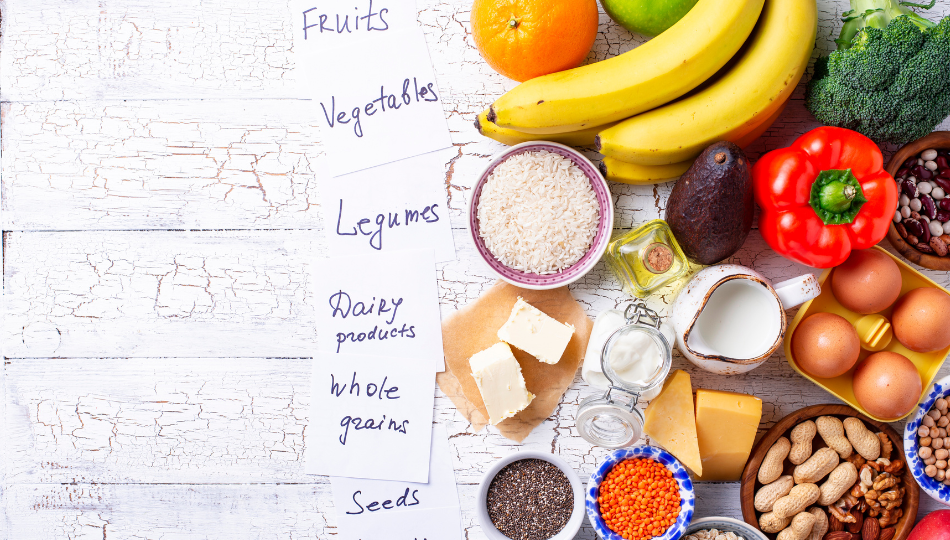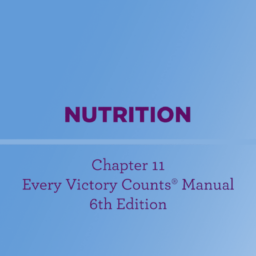When you’re living with Parkinson’s what you eat and when you eat matters. These things influence the efficacy of your medication, but they also affect your energy levels and your ability to exercise. Moreover, hydration and sodium levels influence orthostatic hypotension, and levodopa metabolism affects levels of multiple vitamins in your body.
We’ve shared information about these and other aspects of diet and nutrition related to Parkinson’s over the last 20 years. People with Parkinson’s and other researchers continue to explore the way diet and nutrition influence Parkinson’s symptoms and progression.
RECENT RESEARCH
In late 2023 and early 2024, The Journal of Parkinson’s Disease published two articles discussing the relationship between nutrition and Parkinson’s. The first of these articles, “The Role of Diet in Parkinson’s Disease,” written by Tosefsky et al., examines “the intersection of Parkinson’s with nutrition to identify the best nutritional practices based on current evidence.” The second of these articles, “Clinical Trial Highlights: Dietary Interventions in Parkinson’s Disease” by van der Berg et al., discusses ongoing research into the efficacy of dietary interventions in Parkinson’s.
These articles don’t highlight groundbreaking information, but they both present important observations about what it means to live—and eat—well with Parkinson’s.
THE ROLE OF DIET IN PARKINSON’S
Tosefsky et al. discuss dietary patterns, food groups, and supplementation in their article.
HIGHLIGHTS ABOUT DIETARY PATTERNS
Mediterranean Diets
Physicians often recommend Mediterranean diets for people with Parkinson’s. The data to support this recommendation comes from both the general health benefits associated with diets of this type and from the fact that multiple studies associate a Mediterranean diet with lower incidence of Parkinson’s.
Tosefsky et al. write that the benefits of a Mediterranean diet are presumed to come from “the anti-inflammatory and antioxidant properties of […] phytochemicals and vitamins found in fruits and vegetables, neuroprotective effects of omega-3s found in fish, and/or the beneficial effects of high-fiber diets on the gut microbiome.” They also note most of the evidence supporting Mediterranean diets for people with Parkinson’s comes from epidemiological studies–not from controlled clinical trials.
MIND Diet
The MIND diet is similar to Mediterranean diets, and as such, the MIND diet is associated with lower incidence of Parkinson’s. The MIND diet has not been studied in a controlled trial. Evidence to support the MIND diet comes from the MVP Study, in which people with Parkinson’s report what they eat and evaluate the severity of their symptoms. People who eat a MIND diet tend to report lower severity of symptoms.
Vegetarian and Vegan Diets
Vegetarian and vegan diets can be healthful and plant-based or they can involve unhealthful, highly processed foods. Healthful vegetarian and vegan diets were found to reduce risk of developing Parkinson’s, whereas unhealthful vegetarian and vegan diets increased risk. Tofesky et al. report there is limited data about the effect of these diets on symptoms and progression of Parkinson’s. They only reference one recent trial, which was short (14 days) and involved only 16 people.
Measuring Diet Quality with Alternative Healthy Eating Index
The Alternative Heathy Eating Index (AHEI) provides scores for foods based on their association with chronic disease risk, with higher scores associated with greater healthiness. Eating a diet with higher AHEI scores is associated with lower risk of a person developing Parkinson’s and with a lower risk of Parkinson’s mortality. Reasons for this association are thought to include higher intake of whole grains, nuts, and legumes, as well as higher flavonoid intake.
Ketogenic Diet
A ketogenic diet is a high fat, low carbohydrate diet. The diet can result in cells–including neurons–using an alternative energy source called ketone bodies. This may help neurons survive Parkinson’s-related pathology.
Ketogenic diet has been studied in four recent controlled trials. Findings included:
- Worsening tremor and rigidity between one to four weeks after starting a ketogenic diet
- Improvements in UPDRS Part I and anxiety scores, word recall, memory, and voice quality
HIGHLIGHTS ABOUT FOOD GROUPS
Dairy
Whether dairy is associated with increased risk of developing Parkinson’s is disputed. There is research suggesting that milk intake works against the protective features of urate, but this effect may be limited to low-fat dairy products. Some researchers have proposed that pesticides in dairy products may be the cause of association between dairy and Parkinson’s.
Alcohol
As with dairy, there is inconclusive and conflicting evidence about the relationship between alcohol and risk of developing Parkinson’s. Research has associated moderate alcohol intake with lower risk of Parkinson’s. Possible explanations include lifestyle elements associated with alcohol intake and alcohol’s tendency to increase levels of folic acid, niacin, purine, and urate.
Caffeine
In observational studies, caffeine intake has been associated with lower risk of developing Parkinson’s and slower progression, but a controlled interventional trial involving supplemental caffeine was terminated early due to lack of evidence of improvement, increases in dyskinesia, and decreased cognitive test scores. Tosefsky et al. suggest this may mean caffeine in isolation does not cause the associations seen in earlier observational trials.
HIGHLIGHTS ABOUT SUPPLEMENTS
Similar to their observations related to dietary patterns, Tosefsky et al. say there is insufficient data to make uniform recommendations about supplementation. They recommend further research and that such research “target those with baseline deficiencies in a move towards personalized medicine.”
B1, B6, B9, and B12
While B1 (thiamine) generates some excitement in the Parkinson’s world, there is limited data from controlled clinical trials to support its use.
B6, B9, and B12, on the other hand, are important for the breakdown of a byproduct of levodopa metabolism, and can become depleted in people with Parkinson’s. Talk with your care team about whether you should be supplementing these B vitamins.
Vitamin C
Vitamin C improves levodopa absorption to a minor degree. It may be useful as Parkinson’s progresses and medication absorption becomes more complicated.
Vitamin D
People with Parkinson’s often have low levels of vitamin D. Although vitamin D supplementation has not been shown to have significant effect on symptom severity, low levels are associated with osteoporosis. Because of this and other associations, it is important to talk with your care team about ensuring your vitamin D and calcium levels are appropriate.
Vitamin E and Omega-3s
Two controlled trials found vitamin E and omega-3 fatty acid supplementation improved UPDRS rating scores.
Probiotics
Tosefsky et al. note that some trials have shown positive effects of probiotic supplementation, including improvements with constipation, motor symptoms, depression, and other non-motor symptoms. They also say there are many unknowns, including optimal bacterial strains for probiotic supplementation for people with Parkinson’s and the effect of a person’s overall diet will have on efficacy of probiotic supplementation.
CLINICAL TRIAL HIGHLIGHTS: DIETARY INTERVENTIONS IN PARKINSON’S DISEASE
Van der Berg et al.’s clinical trial review highlights 10 recent or ongoing clinical trials investigating dietary interventions and Parkinson’s.
The researchers’ core message is “research on dietary interventions […] is still in its early days.” They also observe that the none of the 10 studies they review will be able to “definitively answer critical questions about effectiveness” of dietary interventions. Despite this, the article contains multiple important observations:
- Poor monitoring of what participants consume while participating in a dietary intervention trial is a common weakness in current trials. If you are considering participating in a trial for a dietary intervention, ask how the researcher team aims to monitor this aspect of the trial. Failing to adequately monitor this affects the reliability of the conclusions drawn from the research, and if the researchers don’t have a good plan, reconsider volunteering your time.
- Ketogenic diets are popular, but evidence from previous trials is inconclusive. Van der Berg et al. observe that a ketogenic diet is difficult to adhere to for multiple reasons and that it can reduce appetite and carry a risk of malnutrition. This is important because weight loss is associated with increased incidence of fractures, falls, cognitive decline, dyskinesia, and overall worsened quality of life for people with Parkinson’s.
- 250mg vitamin B3 supplementation reduced motor symptoms in an open label trial. A placebo-controlled trial is underway to evaluate B3’s effects for people with Parkinson’s.
- Vitamin E supplementation has been shown to have positive effects on some Parkinson’s symptoms, and a large, ongoing trial of vitamin E should provide more evidence.
DIET AND LIVING WELL: SEVEN THINGS YOU CAN DO TODAY
While these recent overviews of diet, nutrition, and Parkinson’s report there is not enough evidence for broad recommendations for all people, there are some actions you can take today.
- Choose a balanced diet high in fresh fruits and vegetables.
- Time your medication intake relative to your meals. Everyone’s metabolism is different, so keep a journal tracking when you take your medication, when you eat, when the medication dose becomes effective, and how effective the dose was.
- Talk with your care team about ways to manage constipation.
- Make an appointment to speak with a dietician about your diet.
- Carefully evaluate resources. Use your medical “BS detector.”
- Understand that Parkinson’s and some Parkinson’s medications influence levels of important vitamins–especially B vitamins and vitamin D. Talk with your care team about how to monitor these and whether supplementation is appropriate for you.
- Consider participating in well-designed clinical trials investigating diet and Parkinson’s.
ADDITIONAL RESOURCES
Nutrition Webinar with Dr. John Duda
How Can Nutrition Help You Live Well with Parkinson’s?
 WANT MORE PRACTICAL ARTICLES LIKE THIS?
WANT MORE PRACTICAL ARTICLES LIKE THIS?
You can learn much more about living well with Parkinson’s today through our Every Victory Counts® suite of resources. Each manual is packed with up-to-date information about everything Parkinson’s. Click the link below to reserve your manual(s).
Thank you to our 2024 Gold Partner, AbbVie, and our Silver Partner, Mitsubishi Tanabe Pharma America, for their ongoing support of these must-have manuals. Additionally, we’d like to thank Barbara and Dale Ankenman, Abby and Ken Dawkins, Bonnie Gibbons, Irwin Narter, Lorraine and J Wilson, and Gail Gitin in loving memory of Gene Gitin for their generous donations that allow us to make these resources available and accessible to all.











